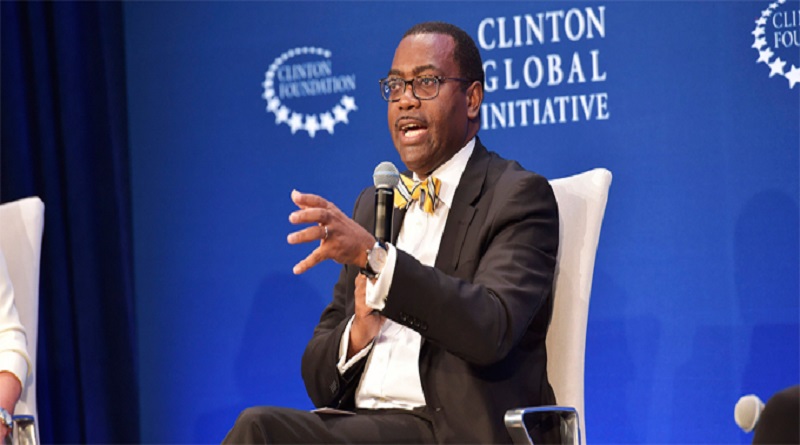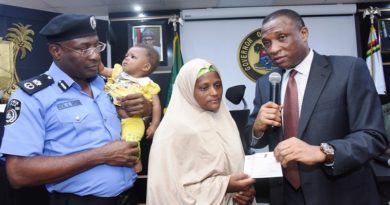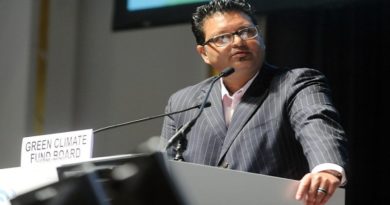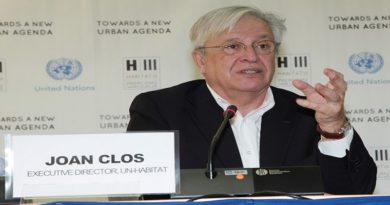AfDB President calls for bold action to light up, power Africa
African Development Bank President, Akinwumi Adesina, on Tuesday called for bold action to light up Africa within the next ten years. “Ten years is the timeframe. We need to take Africa out of the darkness. Period,†Adesina told a panel discussion in New York.
Adesina was participating in a panel discussion on “How Energy Can Spark Global Prosperity†organized during the Clinton Global Initiative Annual Meeting in New York. Adesina shared the stage with Nancy Pfund, Founder and Managing Partner of DBL Partners, a venture capital firm; and Wanjira  Mathai, Director, Partnerships for Women’s Entrepreneurship in Renewables (wPOWER), at the Wangari Maathai Institute. The discussion was moderated by Elizabeth Littlefield, President and CEO of the Overseas Public Investment Corporation. The audience included policymakers, entrepreneurs and investors as well as members of civil society.
The AfDB boss highlighted the urgency to bring energy to the millions of people who do not have access to it. The problem of access to energy is well documented. Of the 1.3 billion people who do not have access to electricity in the world, more than 600 million live on the African continent. “Africa is just tired of being in the dark,†Adesina told the audience.
Lack of energy is one of the major impediments to economic growth, which in turns make it difficult for young people to get the jobs they need. In addition, it can be a source of serious public health problems. It is estimated that around 600,000 Africans, mostly women, die each year as a result of household air pollution. “It does not make sense for a woman to die just to cook a decent meal,†Adesina said.
New Deal on Energy
The AfDB launched a New Deal on Energy for Africa, which outlines the solutions to Africa’s energy problems in a rapidly changing technological and economic landscape. The Bank will invest US $12 billion in different energy projects for the next five years, and will leverage about US $50 billion from the private sector.
To deal with a problem of this scale, Adesina called for a comprehensive approach. “There is no dichotomy between on-grid and off-grid solutions,†he said. The New Deal on Energy takes a holistic view of the sector’s needs. The Bank is planning to put in place a Facility for Energy Inclusion, which will address the spectrum of projects (on-grid and off-grid). The facility will increase the flow of private capital to the sector and address the barrier of accessing finance.
“Money is not the only problemâ€, Adesina noted. He also called for an enabling environment and the right incentives for the private sector to invest. In addition, he stressed that governments, the private sector, development partners, and NGOs should work together to create a better mix for energy production.




